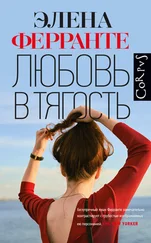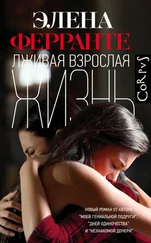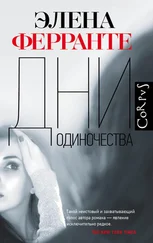“That’s it?”
“Yes.”
“Did she ask about me?”
“No.”
“Never?”
“Never.”
“About your mother?”
“Not her, either.”
“For a whole hour you talked only about your friends?”
“Also about school.”
“What was that music?”
“What music?”
“Music at a very high volume.”
“I didn’t hear any music.”
“Was she nice?”
“A little rude.”
“Did she say nasty things?”
“No, but she’s not very nice.”
“I warned you.”
“Yes.”
“Is your curiosity satisfied now? Do you realize she doesn’t look like you at all?”
“Yes.”
“Come here, give me a kiss, you’re beautiful. Do you forgive me for the stupid thing I said?”
I said I had never been mad at him and let him give me a kiss on the cheek even though he was driving. But immediately afterward I pushed him away laughing, I protested: you scratched me with your beard. Although I had no desire for our games, I hoped we would start joking around and he would forget about Vittoria. Instead he replied: think of how your aunt scratches with her mustache, and what immediately came to mind was not the faint dark down on Vittoria’s lip but the down on mine. I said softly:
“She doesn’t have a mustache.”
“She does.”
“No.”
“All right, she doesn’t. The last thing we need is for you to get an urge to go back and see if she has a mustache.”
I said seriously:
“I don’t want to see her again.”
2.
That wasn’t a lie, either, I was scared to see Vittoria again. But already as I uttered that sentence I knew on what day, at what hour, in what place I would see her again. In fact, I hadn’t parted from her, I had her every word in my head, every gesture, every expression of her face, and they didn’t seem things that had just happened, it all seemed to be still happening. My father kept talking, to show me how much he loved me, while I saw and heard his sister, I hear and see her even now. I see her when she appeared before me dressed in sky blue, I see her when she said to me in that rough dialect: close the door, and had already turned her back, as if all I could do was follow her. In Vittoria’s voice, or perhaps in her whole body, there was an impatience without filters that hit me in a flash, as when, holding a match, I turned on the gas and felt on my hand the flame shooting out of the burner. I closed the door behind me, I followed her as if she had me on a leash.
We took a few steps into a place that smelled of smoke, without windows, the only light coming from an open door. Her figure moved out of sight beyond the door, I followed her into a small kitchen whose extreme orderliness struck me immediately, along with the smell of cigarette butts and filth.
“You want some orange juice?”
“I don’t want to be a bother.”
“You want it or not?”
“Yes, thank you.”
She ordered me to a chair, changed her mind, saying it was broken, ordered me to another. Then, to my surprise, she didn’t take out of the refrigerator—a yellowish-white refrigerator—an orange drink in a can or a bottle, as I expected, but picked out from a basket a couple of oranges, cut them, and began to squeeze them into a glass, without a squeezer, by hand, with the help of a fork. Without looking at me she said:
“You didn’t wear the bracelet.”
I got nervous:
“What bracelet?”
“The one I gave you when you were born.”
As far as I could remember, I had never had a bracelet. But I sensed that for her it was an important object and my not having worn it could be an affront. I said:
“Maybe my mother had me wear it when I was little, until I was one or two, then I grew up and it didn’t fit anymore.”
She turned to look at me, I showed her my wrist to prove that it was too big for a newborn’s bracelet, and to my surprise she burst out laughing. She had a big mouth with big teeth, and when she laughed her gums showed. She said:
“You’re smart.”
“I told the truth.”
“Do I scare you?”
“A little.”
“It’s good to be afraid. You need to be afraid even when there’s no need, it keeps you alert.”
She put the glass down in front of me; juice had dripped down the outside, while bits of pulp and white seeds floated on the bright orange surface. I looked at her hair, which was carefully combed, I had seen hairdos of the type in old films on television and in photos of my mother as a girl, a friend of hers wore her hair like that. Vittoria had very thick eyebrows, licorice sticks, black lines under her large forehead and above the deep cavities where she hid her eyes. Drink up, she said. I immediately took the glass in order not to upset her, but drinking repulsed me, I had seen the juice run across her palm, and, besides, with my mother I would have insisted that she take out pulp and seeds. Drink up, she repeated, it’s good for you. I took a gulp while she sat on the chair that a few minutes earlier she had considered not to be solid. She praised me, but keeping her brusque tone: yes, you’re smart, you immediately found an excuse to protect your parents, good. But she explained to me that I was off track, she hadn’t given me a baby bracelet, she had given me a big girl’s bracelet, a bracelet she was very fond of. Because, she emphasized, I am not like your father, who is attached to money, attached to things; I don’t give a damn about objects, I love people, and when you were born I thought: I’ll give it to the child, she’ll wear it when she grows up, I wrote that in the card to your parents—give it to her when she’s grown up—and I left it all in your mailbox, imagine me coming up there, your father and mother are animals, they would have thrown me out.
I said:
“Maybe thieves stole it, you shouldn’t have left it in the mailbox.”
She shook her head, her black eyes sparkled:
“What thieves? What are you talking about, if you don’t know anything. Drink your orange juice. Does your mother squeeze oranges for you?”
I nodded yes, but she didn’t acknowledge it. She talked about how good orange juice is, and I noticed the extreme mobility of her face. She could smooth in a flash the folds between nose and mouth that made her grim (precisely that: grim), and the face that until a second earlier had seemed long under the high cheekbones—a gray canvas stretched tight between temples and jaw—colored, softened. My mamma, rest her soul, she said, when it was my saint’s day brought me hot chocolate in bed, she made it into a cream, it was frothy as if she had blown into it. Do they make you hot chocolate on your saint’s day? I was tempted to say yes, even though a saint’s day had never been celebrated in my house, and no one had ever brought me hot chocolate in bed. But I was afraid she would figure it out, so I made a sign to indicate no. She shook her head, unhappy:
“Your father and mother don’t respect traditions, they think they’re someone, they don’t lower themselves to make hot chocolate.”
“My father makes caffe latte.”
“Your father is a jerk, imagine him trying to make caffe latte. Your grandmother knew how to make caffe latte. And she put in two spoonfuls of a beaten egg. Did he tell you how we had coffee, milk, and zabaglione when we were children?”
“No.”
“You see? Your father is like that. He’s the only one who does good things, he can’t accept that others do, too. And if you tell him it’s not true, he erases you.”
She shook her head unhappily, she spoke in a distant tone, but without coldness. He erased my Enzo, she said, the person I was most fond of. Your father erases everything that might be better than him, he’s always done that, he was already doing it as a child. He thinks he’s smart, but he’s never been smart: I am smart, he’s only clever. He can become by instinct a person you can no longer do without. When I was a child, the sun stopped shining if he wasn’t there. I thought that if I didn’t behave the way he wanted, he would leave me all alone and I’d die. So he made me do everything he wanted, he decided what was good and what was bad, for me. Just to give you one example, I was born with music in my body, I wanted to be a dancer. I knew that was my destiny, and only he would have been able to persuade our parents to give me permission. But for your father a dancer was bad, and he wouldn’t let me do it. For him, only if you always show up with a book in your hand do you deserve to stay on the face of the earth, for him if you haven’t gone to school you’re nobody. He said to me: what do you mean dancer, Vittò, you don’t know what a dancer is, go back to studying and shut up. At that time he was making some money with private lessons, so he could have paid for dancing school for me instead of always and only buying books for himself. He didn’t do it, he liked to take significance away from everything and everybody, except himself and his things. With my Enzo—my aunt concluded suddenly—first he let him think they were friends and then he took away his soul, he tore it out and cut it into tiny pieces.
Читать дальше
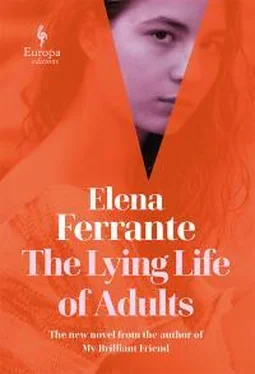
![Элена Ферранте - История о пропавшем ребенке [litres]](/books/32091/elena-ferrante-istoriya-o-propavshem-rebenke-litres-thumb.webp)
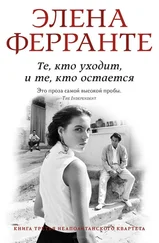
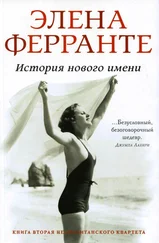
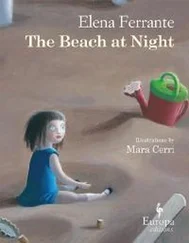
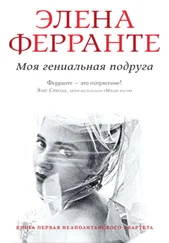
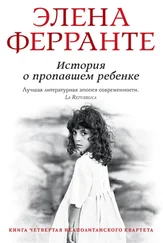
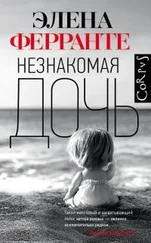
![Элена Ферранте - Дни одиночества [litres]](/books/404671/elena-ferrante-dni-odinochestva-litres-thumb.webp)
